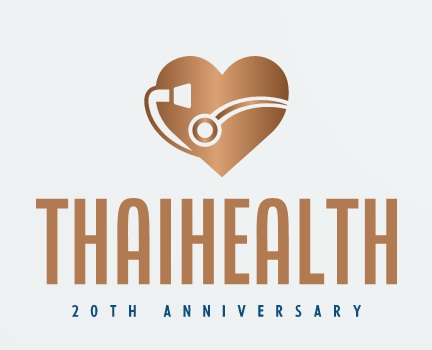โควิด พบเสี่ยงเป็นเบาหวาน โรคหัวใจ และเส้นเลือดอุดตันมากกว่าปกติหลายเท่า
การติดเชื้อไวรัสโควิด นอกจากจะทำให้เสี่ยงในช่วงเวลาที่เป็นแล้วยังพบว่า มีความเสี่ยงต่อโรคหัวใจและหลอดเลือด รวมถึงเพิ่มโอกาสเป็นเบาหวานมากกว่าปกติ
การศึกษาในผู้ป่วยกลุ่มใหญ่ในอังกฤษ โดยรีวิวประวัติจากผู้ป่วยกว่า 4 แสนรายที่หายป่วยจากเชื้อไวรัสโควิด covid-19 โดยมหาวิทยาลัยคิงคอลเลจ จนถึงเดือน มค. 2022 ลงในวารสาร PLOS medicine พบว่า อัตราการพบผู้ป่วยเบาหวาน เพิ่ม 81% ในช่วงเกิดอาการ และคงเพิ่มอย่างต่อเนื่องแม้จะหายป่วยไปแล้วถึง 1-3 เดือน
การติดเชื้อเฉียบพลันของไวรัสโควิด 19 ก่อให้เกิดอาการอุดตันของหลอดเลือด เพิ่มจากคนปกติ 6 เท่า โดยเฉพาะ การอุดกั้นของหลอดเลือดในปอดเพิ่มขึ้น 11 เท่า อัตราการเกิดการเต้นของหัวใจผิดปกติก็เพิ่ม เช่นเดียวกันกับ การอุดตันของหลอดเลือดดำส่วนอื่น
การศึกษาจากแหล่งเพิ่มเติม พบ อัตราการเป็นโรคหัวใจหลอดเลือดและเบาหวาน ยังเพิ่มจนกระทั่ง 3 เดือนภายหลังจากหายจากโควิดแล้ว
อย่างไรก็ตาม มีข้อวิจารณ์ว่า เรายังไม่สามารถสรุปได้อย่างเต็มปาก เพราะผู้ที่เป็นโควิด นอกจากจะมีปัจจัยเสี่ยงกว่าคนปกติ ยังเป็นผู้ที่มีแนวโน้มน้ำหนักเกิน ที่เป็นปัจจัยเสี่ยงต่อเบาหวานอยู่แล้วด้วย
Recent research indicates a potential link between COVID-19 vaccines and thrombotic events, particularly cerebral venous sinus thrombosis (CVST) with thrombocytopenia. A case series published in JAMA reported eight cases of CVST following Ad26.COV2.S vaccination from March to April 2021 [See I et al., 2021]. Additionally, a review on the Skeptical Raptor blog noted reports of deep vein thrombosis and pulmonary embolism associated with COVID-19 vaccines.
For detailed mechanisms, Sinha et al. (2020) discussed whether cytokine storms might contribute to thrombotic complications in COVID-19 patients [Sinha P et al., 2020]. However, specific data on post-vaccination thrombosis pathways remain limited and evolving; professional society guidelines should be consulted for updated recommendations.
Based on the retrieved data, there is some evidence suggesting a potential link between COVID-19 and subsequent development of diabetes or heart disease. Here are the key points:
- Diabetes: Some studies indicate that SARS-CoV-2 can trigger or unmask type 1 diabetes through mechanisms such as virus-triggered β-cell death, immune-mediated loss of pancreatic β-cells, and direct damage to these cells.
- Heart Disease: Research has shown that COVID patients without a prior history of heart disease or diabetes developed these conditions following infection. For instance, more than 428,000 individuals diagnosed with COVID in 2020-2021 were subsequently found to have developed either condition.
Regarding post-vaccination thrombosis:
- There are reports of cerebral venous sinus thrombosis and thrombocytopenia after Ad26.COV2.S vaccination.
- Cases of deep vein thrombosis and pulmonary embolism have been reported following COVID-19 vaccines, though these appear rare.
Thrombosis and COVID-19/Vaccination: Recent studies indicate a link between COVID-19 vaccination, particularly the Ad26.COV2.S vaccine (Johnson & Johnson), and rare cases of cerebral venous sinus thrombosis with thrombocytopenia. For example:
- A study published in JAMA reported such cases from March to April 2021 (See et al., 2021).
- Some reports also suggest deep vein thrombosis and pulmonary embolism post-vaccination (Skeptical Raptor, 2021).
Diabetes Link: COVID-19 is associated with an increased risk of hyperglycemia, diabetic ketoacidosis (DKA), and new-onset diabetes. Mechanisms include:
- Virus-triggered β-cell death or immune-mediated loss of pancreatic cells (RAG Results).
- Studies suggest that 40% of COVID survivors may face elevated diabetes risk due to insulin resistance (National Herald India, 2021).
Heart Disease Link: COVID-19 is often associated with heart disease, even in patients without prior history. A study found over 428,000 individuals diagnosed with COVID-19 in 2020–2021 developed new-onset diabetes or heart conditions (Pollen.com).
Other Post-COVID Conditions: Post-COVID complications may include:
- Persistent symptoms like fatigue, cardiovascular issues (e.g., myocarditis), and metabolic disorders.
- Obesity is a significant comorbidity due to SARS-CoV-2’s ability to infect adipocytes (Elife Sciences).
References:
Elife Sciences (Obesity and Diabetes)
Skeptical Raptor, COVID-19 Vaccines and Blood Clots
Last updated: ‘ . get_the_modified_time(‘F j, Y’) . ‘‘; ?>Thaihealth team leader

